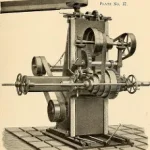
MTBF, KPIs, yield, return rate, warranty… bah!
We may use one or more of these when establishing product reliability goals. When tracking performance. When making decisions.
Goals, objectives, specifications, and requirements, are stand-ins for the customer’s experience with the product.
We’re not trying to reduce warranty expenses or shouldn’t be solely focused on just that measure. We need to focus on making decisions that allow our product deliver the expected reliability performance to the customer. [Read more…]













 Ask a question or send along a comment.
Please login to view and use the contact form.
Ask a question or send along a comment.
Please login to view and use the contact form.